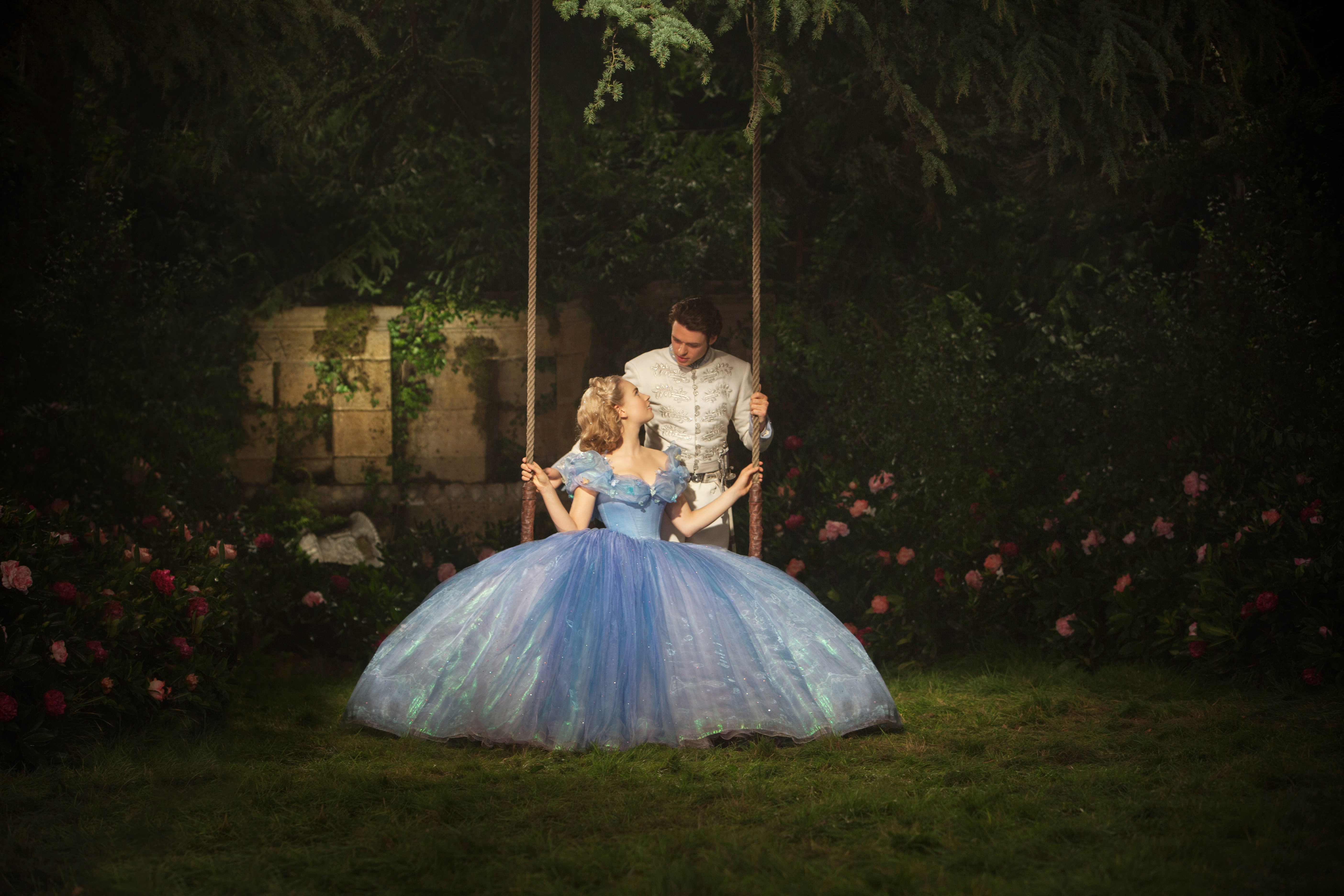Last Friday, the new live-action Cinderella movie was released.
The movie trailers and hype excited the 5yr old little princess inside me, and I eagerly awaited my chance to see the film. Johnny and I planned a date for opening night, and that afternoon I lugged all three kids to Kohl's so I could pick out a date night outfit. (Side note: Kohl's has an entire line of Cinderella themed clothing. Go figure.) I ended up wearing new skinny jeans because the blue tulle skirt didn't fit, but enough about me. . .
Our date night was wonderful, and the Cinderella movie was fantastic. The costumes were beautiful; the set designs were on par with my imagination; and the actors and actresses were ideal. All in all, the live-action Cinderella did not disappoint.
I wish I could more eloquently write about this; just know the film is worth the expensive movie theater ticket.

Another bonus to the film was that the director held true to the animated classic.
I must say "Thank you, thank you, thank you" to the director for honoring the classic story. As my husband and I left the movie theater, we speculated whether the movie critics would accept its rosy fairy tale ending.
The next morning, I awoke to a news feed full of negative press about the movie.
People questioned, "Why did the movie focus so much on kindness?" or "How come she married the Prince?" or "I won't allow my daughter to watch movies about weak females." Some opined that the director should have given the live-action Cinderella a "modern twist," just like Disney's Maleficent or Frozen or Brave. Those films featured powerful females who were free from the constraints of the "damsel in distress" stereotype. After all, women nowadays can take care of themselves "donchaknow." Other critics focused on the size of Cinderella's waist, or the implausible idea of happiness in marriage, or the “princess craze and girlie-girl culture that has risen around it."
After reading feminist critics of the movie, I again discussed the movie with Johnny. He loved the movie for its simplicity and goodness too. We pondered what would be different if the hard core feminists had gotten their way with this Cinderella movie, and our final determination might surprise you.
If modern day feminists had "updated" Cinderella, the plot might have included these scenes:
-Ella would have abandoned her family/childhood home and found an apartment in the village.
-Ella would have ignored the prince in the woods,
-Ella would have ignored the prince in the woods,
because she would have been too busy focusing on her education in order to raise her station.
-Ella would have worn a pant suit to the Grand Ball in defiance of cultural ballgowns that praise tiny waists.
-Ella would have asked the fairy godmother for some comfortable flats instead.
-Ella would have rejected the prince's marriage proposal and offered to simply live together instead, because marriage is an outdated and patriarchal custom.
Cinderella would be altered into a woman who fends for herself, who rejects the notion that marriage can be fulfilling, and who reminds everyone around her that she has been unfairly dealt with in the past. She does not overcome her past and forget the pain, rather she uses her mistreatment as a driving force for self preservation.
In conclusion, modern day feminists would have turned Cinderella into her stepmother.

Lady Tremaine (aka the wicked stepmother) once had a happy life. But in her second marriage to Ella's father, we see her feeling unsatisfied. To her, marriage is not fulfilling; it is only necessary for monetary protection. Neither adult is happy in this marriage, and when Ella's father dies, the stepmother focuses on the practical things. She fires the household staff to save money, and she "allows" Cinderella to clean to distract herself from grief. Quite resourceful, no? Later she spends a fortune on attire for her less attractive daughters, hoping to secure them a wealthy match - not a match borne out of love but out of money. Lady Tremaine taught her daughters to look out for themselves and to protect their own interests. She does not teach her daughter to value or care for men, rather she encourages them to focus on their own selfish goals.
On the other hand, Ella focuses on courage and kindness. She knows her divine worth as a person, and she kindheartedly loves other people. Despite being given a cruel nickname intent on demeaning her, she embraces the name "Cinderella" for helping her grow into the person she desires to be - a kind, wise, and loving female. True, she meets a kind man who happens to be a wealthy prince. And yes, he searches the kingdom to ask for her hand in marriage. But Cinderella's strength comes through courageously defending those she loves, through hope, and through forgiveness. Those positive qualities make Cinderella a princess worth celebrating.

Courage and Kindness are not weak traits.
I hope my children, male and female, show strength through kindness in the future.
Margaret D. Nadauld, a previous President of a world-wide organization for teenage girls once said,
"The world has enough women who are tough; we need women who are tender. There are enough women who are coarse; we need women who are kind. There are enough women who are rude; we need women who are refined. We have enough women of fame and fortune; we need more women of faith. We have enough greed; we need more goodness. We have enough vanity; we need more virtue. We have enough popularity; we need more purity."
Sounds like we need more Cinderellas and fewer Stepmothers in this world.
No comments:
Post a Comment